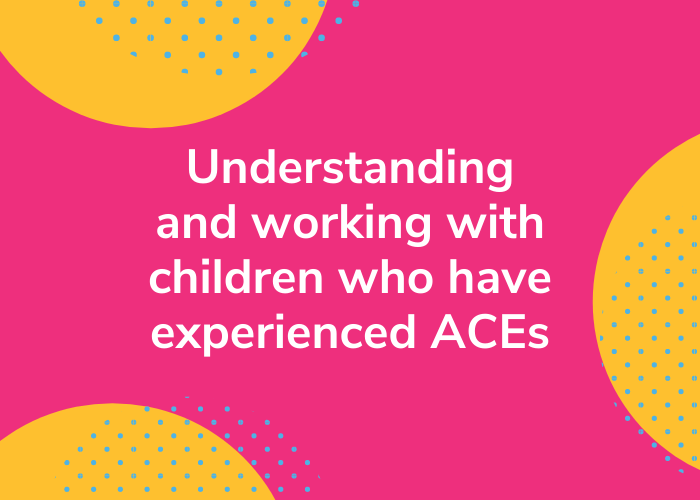
ACEs (Adverse Childhood Experiences) are traumatic or stressful events occurring in childhood which can have a lasting impact on a child’s development and ability to engage in education. ACEs can include abuse, neglect or household dysfunction such as exposure to domestic violence or substance abuse.
ACEs can create dangerous levels of stress, known as toxic stress which can damage the developing brain and affect overall health. When a child experiences toxic stress their body essentially responds with a fight or flight reaction increasing their heart rate, blood pressure and muscle tension. They struggle to think clearly or respond to the environment around them – they are in survival mode.
However, this does not mean that the brain is fixed in this state and there is a lot that parents and caregivers can do to support and guide children who have experienced ACEs.
Health Scotland claim that ‘children who end up doing well despite adversity have usually had at least one stable, committed relationship with a supportive parent, caregiver or other adult’. They believe that these relationships help children to learn how to regulate their emotions and behaviour and adapt to changing circumstances.
It is widely understood that helping a child build resilience is key to helping reduce the long term impact and effects of ACEs.
Many caregivers and teachers recognise the importance of developing resilience in children and have incorporated this into their day-to-day activities. Burnside Primary School in Carnoustie, Angus is a great example of a school with a nurturing approach to education.
Learning from the extensive research conducted on ACEs and their implications, head teacher, Nicky Murray began implementing strategies that create a responsible and inclusive environment throughout the school. They ensure kids have their basic needs met by providing a second breakfast to every child in the school, and teach emotion regulating activities such as tai chi and breathing exercises so that the children have the tools to recognise and regulate stress.
They created their own framework for resilience, NEAR and FAR, which focuses on educating staff, children and families on the biology of behaviour, building strong relationships between staff, children and families, and actively promotes strategies that allow the children to take learning into their own hands. Their school motto, GRIT (get really into trying) is a great way to encourage positivity and resilience in children from a young age and they have had overwhelmingly positive responses from parents and children since introducing this way of thinking to the school.
ACEs are very common and can be incredibly harmful to a child’s self confidence and development, but this doesn’t have to be the case. Parents and caregivers can make a huge difference in a child’s life, helping them to develop the emotional tools and resilience to face difficult situations without being overwhelmed.
U-Evolve is committed to helping young people develop the resilience required to overcome the effects of ACEs. Get in touch if you want to know more about the work we do!
http://ssscnews.uk.com/wp-content/uploads/2018-01-29-Burnside-PS-near-and-far.pdf
https://www.salzburgglobal.org/fileadmin/user_upload/Understand_ACEs.pdf

